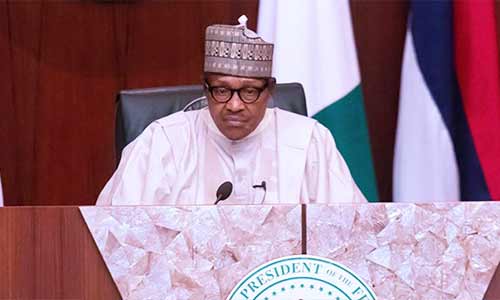THE EXECUTIVE 13/02/2023
FG plans Carbon Tax, Budgetary System

The Federal Government has said it has plans to introduce taxes and a budgetary system to the management of greenhouse gas emissions in the country, in line with the recently approved Energy Transition Plan, as part of the Climate Change Act.
This was disclosed to State House Correspondents by the Director-General of the National Council on Climate Change (NCCC), Salisu Dahiru, after meeting with President Muhammadu Buhari at the Presidential Villa over the weekend.
At a recent meeting in Abuja, President Muhammadu Buhari approved the Energy Transition Plan, to be driven by the National Council on Climate Change (NCCC), in accordance with the Climate Change Act 2021.
A carbon tax or tax on greenhouse gases, comes in two broad forms, namely; an emissions tax, which is based on the quantity an entity produces; and a tax on goods or services that are generally greenhouse gas-intensive, such as a carbon tax on gasoline.
Under the arrangement, the federal government is expected to set a price that emitters pay for each ton of greenhouse gas emissions.
The tax, apart from helping to generate revenue for the government, will encourage consumers to take steps to switch fuels, adopt new technologies and reduce emissions to avoid paying the tax.
Dahiru said the agency sought and obtained approval to initiate key deliverables contained in the Climate Change Act, including establishing a carbon budget for the country.
“That is now going to provide allowances for every entity, whether government or private sector, in terms of how much emissions it may be allowed, and exceeding those emissions could also attract penalties.
“What will be the nature of these penalties? These penalties are going to be contained in another deliverable that the Climate Change Act has also requested the Council to do.
“That is to develop a framework for a carbon tax system in Nigeria. It will also look at where projects are being implemented in the country.
“These projects are capable of reducing overall carbon or greenhouse gas emissions. The harvest of these emissions reductions are normally contained in what we call an emissions reduction certificate, which can be translated into carbon credit, and then sold to potential buyers within the country and outside,” he explained.



